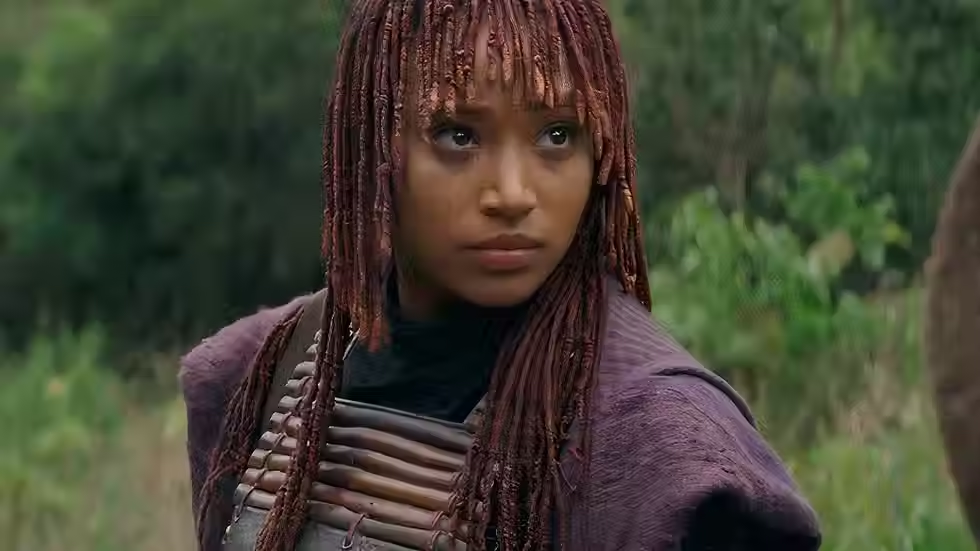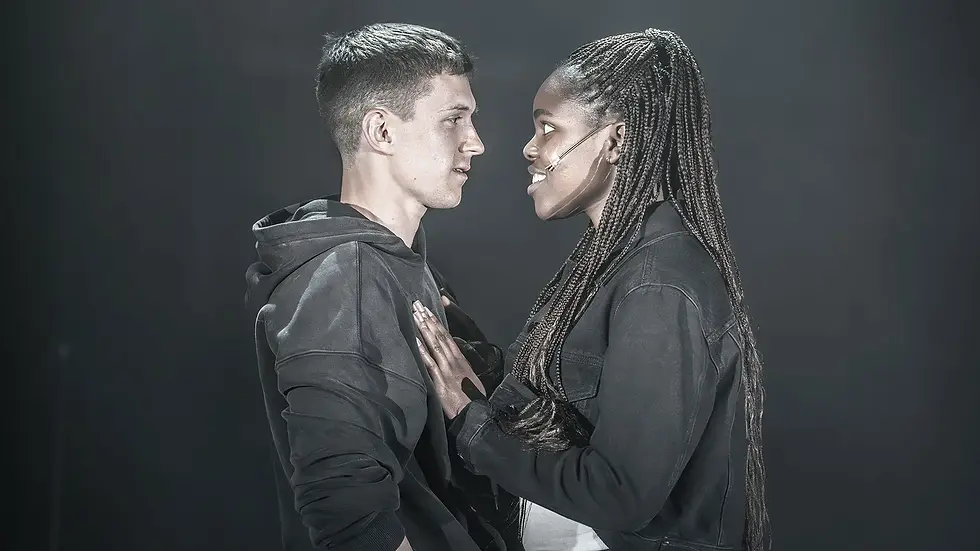When will talent be enough? Black women and the fight for recognition
- lsbfreelance
- Jan 10
- 4 min read
Represented but not always respected or accepted

Black women are everywhere on our screens and it’s been a joy to watch. From Ayo Edibri stealing scenes in Bottoms, Naomi Ackie mesmerising us in Blink Twice and Zendaya continuing her reign in Challengers - from the outside looking in, it would seem like Black women are finally receiving the recognition and accolades they deserve for their talent.
On the surface, an alien would mistake this representation as a society finally on track - finally valuing Black women for their talent. But beneath this progress, the question remains: does representation truly translate to genuine acceptance and respect?
This doesn’t just happen in entertainment - Black women across industries are navigating spaces where they must work twice as hard to be seen, heard and respected. Their achievements are often met with backlash, microaggressions and the exhausting demand to prove their worth again and again.
I spoke to Hannah Abban, a friend and PR professional about the glass ceilings Black women face and continue to shatter daily.
Visibility does not equal respect

For Black women, existing often means stepping into the firing line of systemic racism. Consider Francesca Amewudah-Rivers, who recently portrayed Juliet in the West End’s Romeo and Juliet alongside Tom Holland. Her performance was met not with critical acclaim but with relentless online abuse. Rather than being celebrated as the talented actor she is, she was dismissed as a ‘diversity hire’.
This isn’t new. Halle Bailey faced this kind of hostility when cast as Ariel in The Little Mermaid, despite her heavenly singing voice making her a worthy pick. Amandla Stenberg encountered it while starring in The Acolyte and Anna Diop was subjected to vitriol for playing Starfire - an alien! - on Titans.
Hannah pointed out, “These criticisms have nothing to do with the quality of their work or their talent. It’s about pushing Black women out of spaces people think they don’t belong in.” Even when breaking boundaries, Black women are scrutinised far more harshly than their non-Black counterparts.
it starts backstage
Obviously, this isn’t just an issue in entertainment. Take Leomie Anderson’s experience as a model. I first saw Leomie on Channel 4’s documentary, The Model Agency, watching her speak out about the racism she faced as a Black woman in the fashion world.
Just last year, during Milan Fashion Week, she was once again forced to do her makeup backstage due to the lack of artists able to accommodate her skin tone. It raises the question: why push for diversity on the runway to showcase different races, shapes and sizes, when the support behind the scenes - where it truly counts - is absent? There isn’t even enough genuineness or care to extend this support backstage.
Similar to this is Jodie Turner-Smith’s criticism of Disney for not defending The Acolyte’s stars who faced racist backlash. It would be nice if employers showed their support and put their foot down against hate.
And the PR world isn’t immune to these dynamics either. In Hannah’s article, ‘As a Black PR pro I’m not likely to reach a senior position in PR’, she highlighted findings from the UK Black Comms Network research, which revealed that more than two-thirds of Black professionals have considered leaving the industry. “Companies can make significant changes by giving their employees a platform to be heard,” she explained. “Empty public statements or performative DE&I initiatives do nothing for the people of colour actually working there.”
It’s equally unsurprising - and frustrating - that so many Black and Mixed Black PR professionals feel compelled to code-switch during the hiring process, just to be considered for roles in communications.
There’s a clear pattern: industries want the look of diversity without doing the actual work of supporting it. Black women are hired, celebrated, and then left to fend for themselves in environments that remain hostile.
In our everyday lives
As a Black woman, I’m exhausted. Beyond the systemic issues, there’s an undeniable emotional toll these environments put on Black women and I am done with being ‘strong’. Navigating spaces designed to exclude us is exhausting! It doesn’t matter if it’s an online troll or a dismissive colleague because the message is the same: “You don’t belong here.”
It’s bittersweet watching Black peers land high-profile roles, knowing they’ll undoubtedly face hate just because of the colour of their skin. And this isn’t just about public-facing roles or high-profile industries.
There’s a deeper issue of everyday microaggressions, isolation and the constant pressure to excel while not being recognised for the work we already put in. As Hannah said, support for diversity doesn’t stop at the hiring process. “The more companies do without a long-term plan, the more employees lose faith. Diversity doesn’t start and stop with hiring. It should be real, ongoing support. Making Black employees feel welcome and validated requires effort.”
The system wasn’t built for us but that doesn’t mean we don’t belong here. Be proud, shamelessly take up space. As a Black woman, you deserve to be seen, valued and celebrated, not just for breaking barriers, but simply for being you.
Take care of yourself, advocate for yourself and rest when you can’t. And more importantly, build a network of people who lift you up and protect your peace when others can’t or won’t.
And if you’re an ally reading this, please listen - because we’ve been telling you what we need for a very long time. Until genuine support becomes the norm, visibility alone will never be enough.
Comments